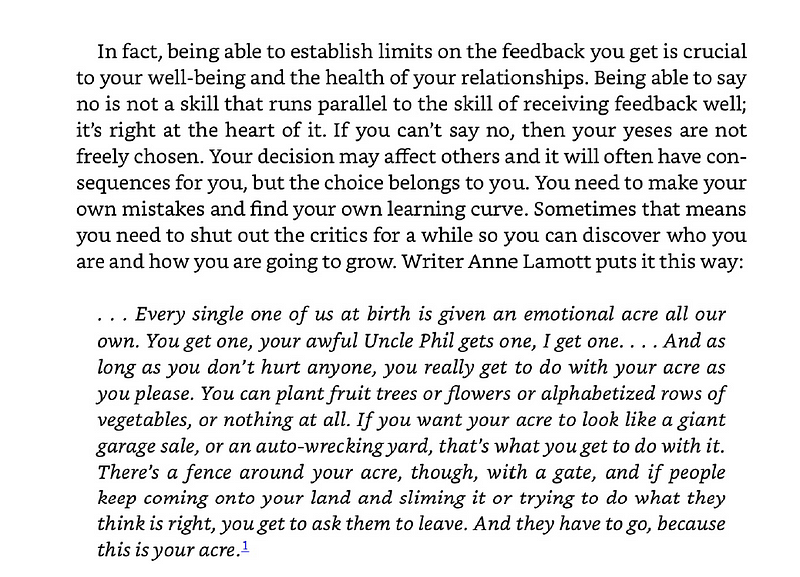I was thinking about advice the other day, and thinking about when it doesn’t help.
I was at a retreat, and someone suggested a dietary change to me that helped her a lot. I told her it wouldn’t work for me, for practical reasons. Her face told me she was a little sad, and I felt pushed and guilty.
The same day, later the afternoon, I recommended a vacation spot to a guy, and he explained to me why he it wouldn’t suit him. This time I felt dismissed, and he looked (to me) to be annoyed.
Upon returning home, I suddenly saw the same pattern over and over again. Why do we feel we need to reject advice?
We all give advice. We all get advice. Advice is a gift. It’s typically given out of a desire to help.
We all get gifts we don’t want or like. I get something I don’t want almost every holiday. I say thank you, and then decide what to do it with the thing. Return it? Regift it? Recycle it?
So what if we did that — accept the gift then decide what to do with it — with advice?
Yesterday, someone wrote me an email with advice about how to handle a fundraising effort I’m running. The advice wasn’t bad, but it didn’t fit my goals nor my approach. At first I felt a little flustered and annoyed. After cooling off a bit, I wrote back, “Thank you so much for this advice. I really appreciate you taking the time to share your experience. This is a lot to think about, and I’ll take it under consideration.”
After I sent my response, I felt better about his advice. I reread the email, and it gave me some new ideas. His advice wasn’t actionable, yet it helped me think about what I did need. More importantly, I felt cared for. Someone thought what I was doing mattered enough to reach out.
Saying thank you to advice creates gratitude and connection.
Next time someone suggests I visit Alaska, rather than telling them I hate the cold, I’ll say thank you, and ask them what they liked about it. Next time someone suggests a raw diet, instead of telling them I hate salad, I’ll say thank you, and ask what they go out of it.
I don’t have to take the advice.
Maybe that’s why we reject advice. Maybe we think accepting it means we have to take it. But we don’t.
From Thanks for the Feedback:

I want to appreciate the gifting instinct, even if the gift isn’t right for me. Perhaps a person wants to share something they love. Maybe they just want to express caring for me. Intent is unknowable. I think a gift deserves a thank you.
Who knows, the stories they tell me about their advice may show me something new. It will certainly teach me something about who they are, and allow for connection rather than resentment. The current system isn’t working.
I keep a list of heuristics for living, which I add to when I find a new behavior that works. I think I’ll call this one, “Advice is a bid for connection. Be grateful, be curious, be thoughtful.”
Postscript
After I published this, my friend Cennydd shared this with me.
The Abbot’s Gift
A Zen monk, early in his training, is preparing to leave the monastery and switch locations, for that is common in the Zen practice. Before he leaves he goes to the abbot of the monastery to say goodbye. He does so, but the abbot says he has a gift for him. Now, it is part of the Japanese way to accept gifts and be appreciative; to do otherwise is rude and, therefore, wrong. The abbot takes a pair of tongs and picks up a red hot coal from the adjacent fire pit on which he has a tea kettle.
The young monk starts to contemplate what he should do, and after a few moments, runs out of the hall distressed, for he cannot figure out what he is supposed to do. He can take the coal and be burned, or he can refuse the gift of the abbot. Both, in his mind, are things he cannot do.
He meditates on the problem for the next week, and comes back to say goodbye. However, the same scene is played again, and the same frustration is found when he tries to figure out what the abbot wants him to do.
He meditates further on the subject and feels he has discovered how to respond to the abbot’s gift. He returns, for the third time, to say goodbye to the abbot, and as before the abbot picks up a red hot coal and presents it as a gift to the young monk. The young monk simply replies, “Thank you.”
The abbot breaks a grin, nods his head, and returns the coal to the fire pit. “You may go now,” he says.